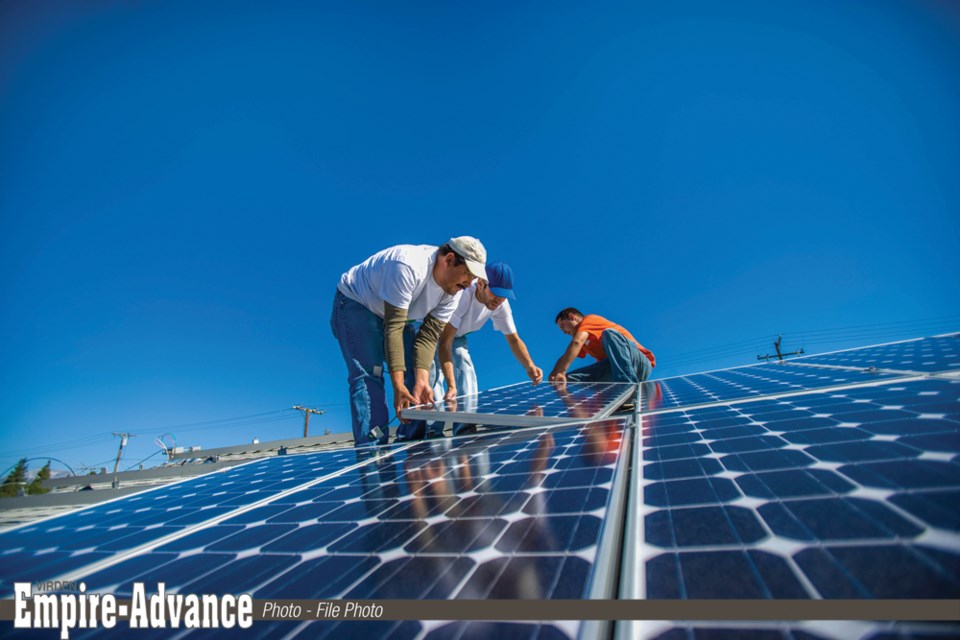A Virden solar panel installer says he “will throw in the towel for now in Manitoba” after a government incentive program that promoted solar energy came to an end.
Rory Gardner, owner of RJG Solar Ltd in Virden, says he was on the brink of having his best year when things changed.
“I went from having ten projects lined up to just two left to finish.” Now he’s looking west to Saskatchewan to build his solar business back up.
Manitoba Hydro’s Solar Energy Program, launched two years ago, offered property owners cash incentives, financing and the buy-back of excess solar energy.
Although demand for the program far exceeded the utility’s expectations (over 800 systems were installed or approved, four times the projected number), Hydro has not extended its end date of April 30, 2018.
Manitoba Hydro spokesperson Bruce Owen said it was just a pilot program intended to gauge customer interest and work out any problem areas. But there’s another hitch.
Gap in incentive programs
On Jan. 24, the Pallister government announced the creation of a new crown corporation, Efficiency Manitoba, to offer energy saving programs in place of Power Smart, which falls under Manitoba Hydro and was said to have a perceived conflict.
Crown services minister Cliff Cullen promised that Manitoba Hydro will keep delivering energy efficiency initiatives even during the transition period.
But Gardner says all they created was a gap in government support that has spooked his customers. Orders have dried up and he believes none will be placed until new incentives are announced.
“There wouldn’t be a solar industry in Manitoba if there weren’t incentives,” he said. “We have such cheap electricity, converting to solar doesn’t pay. But with the incentive program, it turned into a ten to 15-year payback time (on the cost of panels), which made solar feasible.”
Gardner says his would-be customers bailed out before the April 30 end of the program because Hydro unexpectedly reduced the price it pays for excess solar power to those who join the program after Jan. 30.
That change, he says, makes it impossible for a property owner to offset their hydro bills, so going solar stopped being viable.
Rates locked in for new customers
Hydro’s Owen confirms the change saying, “Customers whose applications were received after Jan. 30 through to the program’s end on April 30 will receive an agreement guaranteeing pricing based on the current residential electricity rate but locked in for a period of five years. This price will not increase as rates increase.”
Gardner says it’s not a good deal and he refuses to offer it to his customers. “The rate change created insecurity about the program. It went from a guaranteed payoff in ten to 12 years to something that won’t pay for itself in its lifetime.”
For the time being, Gardner will be spending his energy drumming up solar business in Saskatchewan, which still has a government incentive program, and waiting to see what Efficiency Manitoba rolls out when it gets up and running.




